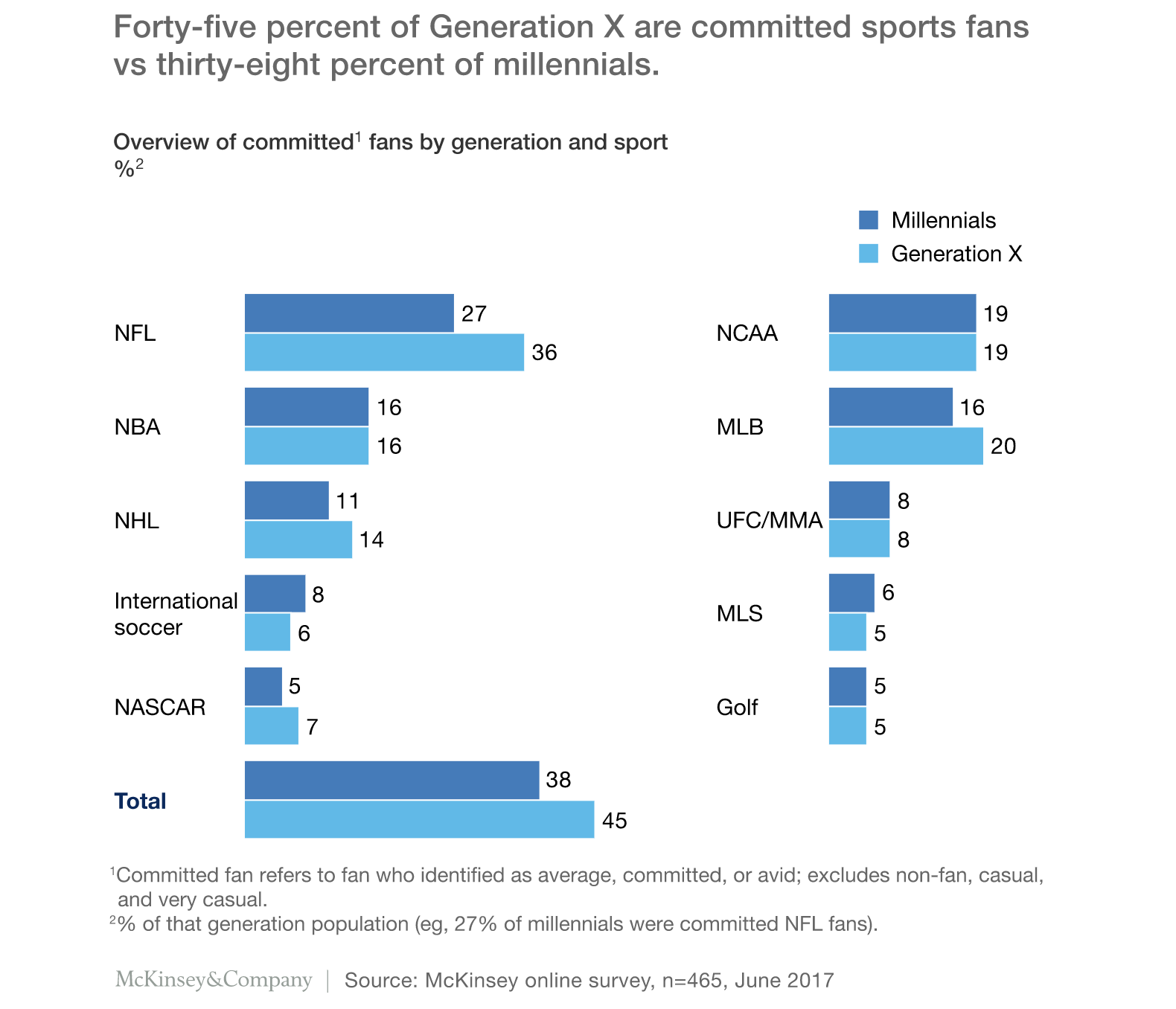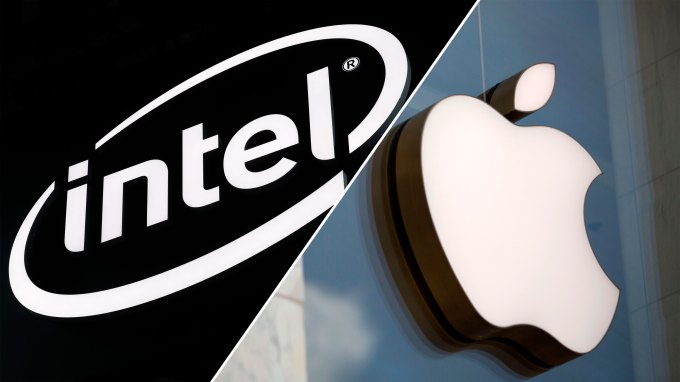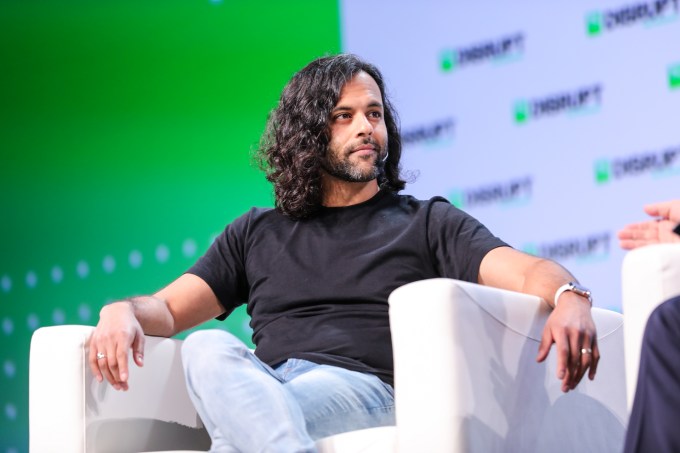Sean Hollister / The Verge:
Tech companies, including Apple and Google, are petitioning the FCC to allow low-power devices for unlicensed use of the 6GHz Wi-Fi band without restrictions — Part of a spectrum battle pitting hardware makers against carriers and utilities — It's rare to see Apple, Google, Microsoft …
Tech Nuggets with Technology: This Blog provides you the content regarding the latest technology which includes gadjets,softwares,laptops,mobiles etc
Sunday, July 28, 2019
Tech companies, including Apple and Google, are petitioning the FCC to allow low-power devices for unlicensed use of the 6GHz Wi-Fi band without restrictions (Sean Hollister/The Verge)
ETtech Top 5: Udaan's valuation may treble, QR Codes & Digital payment firms and more
Flipkart opens first offline centre in Bengaluru
Paytm Money to get Rs 250 crore, eyes low-cost broking business
Fortnite World Cup has handed out $30 million in prizes, and cemented its spot in the culture
The Fortnite phenomenon — the wildly popular battle royale game from Epic Games — has manifested itself in concerned articles, cultural shoutouts and now has sealed its place in the cultural firmament by wrapping up its first “World Cup” which saw the company give away $30 million in prizes.
Congrats to all of our winners this weekend at the #FortniteWorldCup Finals
Solo Champion: @bugha
Duos Champions: @nyhrox @aquaa
ProAM: @Airwaks @RLGRIME
Creative: #FishFam @cizzorz @hiimtylerh @suezhoo @zandOfficial pic.twitter.com/ilBs7RTeTv— Fortnite (@FortniteGame) July 28, 2019
The big winner in today’s solo challenge was sixteen year-old Kyle “Bugha” Giersdorf, who won $3 million for beating out the competition in the solo tournament. And, as sports writer Darren Rovell noted on Twitter, Giersdorf’s prize pool is only $800,000 smaller than the pot for the winner of the U.S. Open, which is set to begin in a few weeks at the same stadium.
Indeed, the esports prize pool is one of the biggest awards for a popular competitive event. Wimbledon winners will take home less than $3 million and Tiger Woods won $2 million for besting the field of competitors at the Masters. \
Fortnite’s big moment is also a big deal for competitive esports in the U.S. The biggest prize pool for an esports event in the U.S. was likely meant to plant a flag and show that competitive gaming is something that can capture the attention of a younger audience that has drifted away from watching more traditional pastimes and watching less sports, according to a McKinsey study.

Courtesy of McKinseys
Giersdorf, who hails from Pennsylvania and plays professionally for the Los Angeles-based esports team, the Sentinels, became the inaugural Fortnite World Cup solo champion by putting in a dominant performance over the entire weekend of competition.
For folks who’ve never played the game (or had it explained to them) Fortnite involves dropping 100 players onto an island where they have to find weapons, build bases and try and eliminate the competition until only one player’s left standing.
It’s a cartoon version of the Hunger Games with no bloodshed, a lot of victory dances, and hours of social networking.
The game has turned its publisher, Epic Games into a multi-billion dollar business. Certainly it’s one that can afford to front a $30 million prize purse for a few days of competition.
The tournament wasn’t just about solo-play. The company had different rounds for the duos competition featuring two-player teams. That competition, which ended on Saturday, also featured a $3 million prize pool and was won by the European duo of Emil “Nyhrox” Bergquist Pedersen and David “Aqua” W.
Epic pulled out all of the stops it could for the multi-day event at Arthur Ashe stadium. In addition to pulling in some of the top names in livestreaming and competitive esports to participate in the event, the company also brought in the DJ Marshmello for a performance.
The tournament pulled in nearly 9 million viewers for the final day of the competition on YouTube alone. Over 40 million people tried out for a slot in the World Cup finals.
And while the prize pot takes a significant chunk out of the $100 million that Epic has committed to spend on competitions this year, the returns in terms of the social capital and cache’ that Epic has given to the esports world can’t be underestimated.
It’s certainly going to change the life of its first World Cup champion. A fact that Giersdorf knows all too well himself.
“Emotionally, right now, I don’t feel too much, except I know that this could pretty much change my life forever,” Giersdorf said in an interview with ESPN. “It’s just absolutely unreal.”
Planning to improve rural internet access, Canada to contribute C$85M to Telesat's R&D, as the company deploys a constellation of 292 low-earth-orbit satellites (Amrita Khalid/Engadget)
Amrita Khalid / Engadget:
Planning to improve rural internet access, Canada to contribute C$85M to Telesat's R&D, as the company deploys a constellation of 292 low-earth-orbit satellites — Telesat, the Canadian telecom and SpaceX internet competitor, wants to connect remote regions with its low-earth-orbit satellites.
Digital payments cos are looking at offline by means of QR codes
Electric vehicles manufacturers to pass on tax benefits to customers
Berlin-based Fundament gets regulator's approval for $280M tokenized real-estate-backed bond offering on ethereum blockchain, which is open to retail investors (Ian Allison/CoinDesk)
Ian Allison / CoinDesk:
Berlin-based Fundament gets regulator's approval for $280M tokenized real-estate-backed bond offering on ethereum blockchain, which is open to retail investors — Fundament, a blockchain startup coming out of stealth mode, has received the green light to issue the first tokenized real-estate backed bond …
BSEH Recruitment 2019 – Apply Online for 895 Principal, TGT, PGT & Other Posts
Since last year, UK and Netherlands police have been pushing young first-time accused cybercriminals into ethical computer training, instead of threatening jail (Jeff Stone/CyberScoop)
Jeff Stone / CyberScoop:
Since last year, UK and Netherlands police have been pushing young first-time accused cybercriminals into ethical computer training, instead of threatening jail — European authorities are testing out the idea that not every cybercrime investigation has to end with a hacker in handcuffs.
Original Content podcast: Our love for ‘Queer Eye’ isn’t quite as strong
It’s been barely more than a year since the “Queer Eye” revival premiered on Netflix, but the series is already back for its fourth season.
This time around, the Fab Five finds new makeover subjects in Kansas City (with a detour to Quincy, Illinois, where hairstylist Jonathan Van Ness grew up), offering their custom mix of lifestyle tips and intense emotional conversations. In many ways, the new season serves as a reminder that “Queer Eye” remains one of the most compelling titles in Netflix’s reality TV lineup.
At the same time, some of our excitement is wearing off. That’s not to say that the show is weaker, exactly — but the formula is becoming more familiar, and the contrivance of whirlwind life changes all taking place in a handful of days feels a little harder to swallow.
We also had reservations about Karamo’s big decision in “Disabled But Not Really,” where he asks the episode’s subject Wesley to meet with the man who shot and paralyzed him years earlier. It makes for suspenseful and moving TV, and Wesley seems to find the conversation rewarding, but we argued about whether the sequence felt more contrived and exploitative than helpful.
In addition to reviewing the latest season of “Queer Eye,” we also discussed our first impressions of the new Netflix science fiction series “Years and Years,” which Jordan was particularly excited about because it stars Katee Sackhoff of “Battlestar Galactica.” This, in turn, led to our thoughts on the new trailer for “Star Trek: Picard.”
You can listen in the player below, subscribe using Apple Podcasts or find us in your podcast player of choice. If you like the show, please let us know by leaving a review on Apple. You can also send us feedback directly. (Or suggest shows and movies for us to review!)
And if you’d like to skip ahead, here’s how the episode breaks down:
0:00 Intro
0:28 “Another Life” first impressions
17:32 “Queer Eye” season 4 review
What will happen when the bad times come?
Here in America we are now in the longest economic expansion in history. That doesn’t mean it’s about to end. But it does raise the question: what happens when it does? When the economic cycle finally inverts into recession, perhaps unexpectedly and with no obvious cause, perhaps because of some geopolitical crisis? We know what happens to the overall economy — but what happens to the tech sector?
Last time around, the answer was: “surprisingly little.” Late 2008 saw widespread expectations that tech was about to crater along with all other sectors. This was the era of Sequoia Capital’s infamous “R.I.P. Good Times” deck. They could hardly have been more wrong.
Instead the Great Recession everywhere else was more of a speed bump in Silicon Valley. In fact it was arguably the birth of the modern startup boom. The number of startups tracked by CrunchBase rose rapidly from 1200 in 2007, by at least 25% every year, to 5700 five years later.
Meanwhile, YoY revenue growth at Google did drop into single digits in 2008-09 … but only for a few quarters, never actually stalled, and quickly returned to 20%+. Amazon growth never fell below double digits. Apple’s went negative for one lonesome quarter, but otherwise stayed north of 20%.
Go back a little further, though, and you come to the dot-com crash, in which tech was — of course, and rightly — hit hard. This was not entirely a bad thing. Even at the time it was clear that to some extent the chaff was being sifted from the industry, albeit at widespread painful personal cost. However, that unpleasant correction set the stage for the nonstop growth since.
So: will the next downturn parallel 2008, or 2001? Will tech growth slow but not stop, or has the time come again for a great economic threshing which will separate wheat from chaff? Or will the next downturn take its own, very different shape? Tech is both much larger now, and much more tightly woven into every other sector.
One could argue a recession will accelerate the demise of legacy businesses and systems, and their replacement with newer, more efficient, software- / API- / AI-driven ones, so the tech industry will actually see a net benefit from any downturn. I’m skeptical of this vulture theory, though. A sinking tide ultimately lowers all boats.
Still, the Big Five — Alphabet, Amazon, Apple, Facebook, Microsoft — will probably sail though relatively untouched. They may stop hiring as aggressively (Google has grown by 18,000 employees to 107,000 in just the last year) but they have enough cash on hand, and diverse enough revenue streams, to weather a storm. Even Google is no longer totally reliant on ads, now that it’s making $8 billion/year from GCP.
The one possible exception is Facebook, which remains the most precarious of the Big Five, given the increasing vitriol it attracts, its relative lack of room to grow in wealthy markets, and, probably most important, the fact it remains a one-trick revenue pony. Could the next recession see Facebook drop from Big Five status? Very possibly.
Lesser companies, though — those outside of tech proper, and even the herd of growth-stage unicorns — will almost certainly be forced into major layoffs. Will the newly-laid-off flock back to school, as happened in 2008? Or will they rush to roll the dice with new startups? Given the rising costs of, and increasing skepticism aimed at, traditional higher education, it seems likely that instead we’ll suddenly see an enormous bloom of new startups.
On the one hand, this means more ideas flung at the proverbial wall, and so more innovation. But on the other, these will presumably mostly be low-cost web / app startups, which as I’ve argued before are increasingly played out, from people who are founding them as a reaction to being laid off rather than because they have a vision they can’t ignore, in a downturn during which funding will presumably grow ever harder to acquire.
There’s a school of thought which says more startups is always better, and another which says that bad startups are like an algal bloom, choking the oxygen (money, attention, talent) from the ambient environment and making things worse for the overall ecosystem. It seems likely that the next downturn will serve as a natural experiment testing these hypotheses. Let’s hope the former is more true. And if (but only if) you have your own burning startup idea in you, it might be best to beat the eventual recessionary rush.
Week in Review: Regulation boogaloo
Hello, weekenders. This is Week-in-Review, where I give a heavy amount of analysis and/or rambling thoughts on one story while scouring the rest of the hundreds of stories that emerged on TechCrunch this week to surface my favorites for your reading pleasure.
Last week, I talked about how services like Instagram had moved beyond letting their algorithms take over the curation process as they tested minimizing key user metrics such as “like” counts on the platform.

John Taggart/Bloomberg via Getty Images
The big story
The big news stories this week intimately involved the government poking its head into the tech industry. What was clear between the two biggest stories, the DoJ approving the Sprint/T-Mobile merger and the FTC giving Facebook a $5 billion slap on the wrist, is that big tech has little to worry about its inertia being contained.
It seems the argument from Spring and T-Mobile that it was better to have three big telecom companies in the U.S. rather than two contenders and two pretenders, seems to have stuck. Similarly, Facebook seems to have done a worthy job of indicating that it will handle the complicated privacy stuff but that they’ll let the government orgs see what they’re up to.
Fundamentally, none of these orgs seem to want to harm the growth of these American tech companies and I have a tough time believing that perspective is going to magically get more toothy in some of these early antitrust investigations. The government might be making a more concerted effort to understand how these businesses are structured, but even focusing solely on something like the cloud businesses of Microsoft, Google and Amazon, I have little doubt that the government is going to spend an awfully long time in the observation phase.
The danger is erraticism and for that the worst government fear for tech isn’t a three-letter agency, it’s the Twitter ramblings of POTUS.
feedback -> @lucasmtny
Onto the rest of the week’s news.

(Photo: ALASTAIR PIKE,THOMAS SAMSON/AFP/Getty Images)
Trends of the week
Here are a few big news items from big companies, with green links to all the sweet, sweet added context:
- Apple dropping $1 billion on Intel’s modem business
Apple is snapping up a missing link in its in-house component production with the $1B purchase of most of Intel’s modem business. This follows a dramatic saga between Intel, Qualcomm and Apple over the past year, but Apple will be making its own smartphone modems the question is when they actually end up in new iPhones. Read more here. - Microsoft dropping $1 billion on OpenAI
Microsoft announced this week that it is dumping $1 billion into Sam Altman’s OpenAI research group. The partnership is pretty major, but it’s just one of the interesting avenues Microsoft is using to ensure its Azure services gain notable customers. Read more here. - Galaxy Fold is coming back!
After a very embarrassing soft launch, Samsung which managed to make it a several devices beyond the Note 7 before another garbage fire is trying its hand at the Galaxy Fold again and will be releasing it sometime in September. It seems like the carriers are a little dubious of the prospect and T-Mobile has already opted out of carrying it. Read more here.
GAFA Gaffes [Facebook Edition!!]
How did the top tech companies screw up this week? This clearly needs its own section, in order of badness:
- Facebook gets five:
[Facebook settles with FTC: $5 billion and new privacy guarantees] - FTC isn’t quite done with Facebook:
[Facebook says it’s under antitrust investigation by the FTC] - Facebook dismissed CA warnings:
[Facebook ignored staff warnings about sketchy Cambridge Analytica in September 2015] - Facebook left kids vulnerable:
[Facebook fails to keep Messenger Kids safety promise]

Extra Crunch
Our premium subscription service had another week of interesting deep dives. This week, my colleague Danny spoke with some top VCs about why fintech startups have been raising massive amounts of cash and he seemed to walk away with some interesting impressions.
Why fintech VC mega rounds have become so common
“…The biggest challenge that has faced fintech companies for years — really, the industry’s consistent Achilles’ heel — is the cost of acquiring a customer. Financial customer relationships are incredibly valuable, and the cost of acquiring a user for any product is among the most expensive in every major channel.
And those costs are going up…”
Here are some of our other top reads for premium subscribers.
- The roles tools play in employee engagement
- Which types of startups are most often profitable
- What to watch for in a VC term sheet
We’re excited to announce The Station, a new TechCrunch newsletter all about mobility. Each week, in addition to curating the biggest transportation news, Kirsten Korosec will provide analysis, original reporting and insider tips. Sign up here to get The Station in your inbox beginning in August.
EU finance ministers agreed to set a €3 customs duty on low-value parcels from July 2026, aiming to crack down on cheap Chinese imports from brands like Shein (Reuters)
Reuters : EU finance ministers agreed to set a €3 customs duty on low-value parcels from July 2026, aiming to crack down on cheap Chinese...
-
Amrith Ramkumar / Wall Street Journal : An interview with White House OSTP Director Michael Kratsios, a Peter Thiel protégé confirmed by ...
-
The first project we remember working on together was drawing scenes from the picture books that our mom brought with her when she immigrate...
